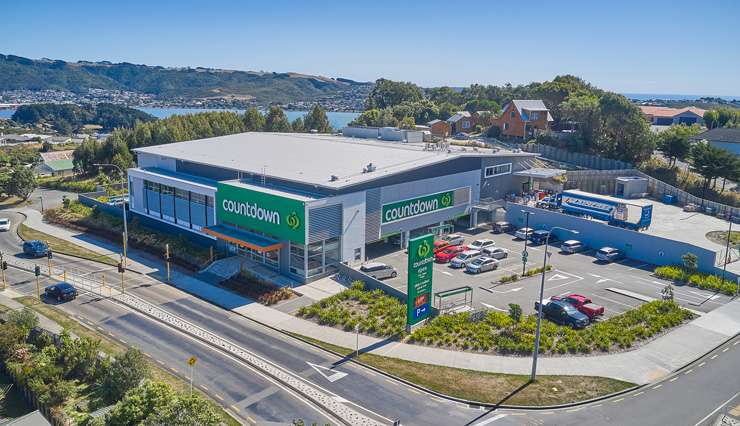Two Countdown supermarkets have been snapped up by an Auckland-based buyer for almost $45 million.
Countdown's owner, Woolworths NZ, had put the two North Island supermarkets on the market after the country moved to alert level one.
The properties, which were marketed for sale by Peter Gorton and Ryan Johnson, of Bayleys, sold to a single high-net worth investor for a total of $44,355,369.
READ MORE: The ultra-rich foreign buyers who all want a piece of NZ
Start your property search
Johnson, Bayleys national director of commercial and industrial, said multiple tenders were submitted from around the country and from a broad range of investors.
The two fully leased supermarkets - one in Orewa, north of Auckland, the other in Papakowhai in Wellington - had been offered for sale together and individually.
With the properties enjoying net combined rental income of $2.2 million, the sale represented a 4.98 percent yield.
Johnson said the scale of the portfolio had stirred up the investor market. “If anything, the Covid-19 scenario served to increase the amount of interest we received for these properties,” he said.
“In the best of times, supermarkets are a proven non-discretionary asset class so we knew the market would respond positively.
“But the way that supermarkets kept trading and paying rent throughout the Covid-19 lockdown underlined the role that supermarkets play as an essential service and ramped up the appeal of these investment opportunities to new levels.”

3A Whitford Brown Avenue, Papakowhai, Porirua City, has an initial 10-year leaseback to Countdown. Photo / Supplied
Woolworths New Zealand’s head of property Matthew Grainger, said the company would use the proceeds to fund its development plans.
“We have a significant property development pipeline over the coming years, and the result of this sale highlights that the market is keen to invest in supermarket properties.”
Johnson said that investors of all profiles – from private individuals to syndications, listed entities and intergenerational family trusts – appeared to be revising investment strategies to focus on defensive asset classes, including supermarkets, healthcare and large format retail.

Ryan Johnson: "The Covid-19 scenario served to increase the amount of interest." Photo / Supplied
“Their search for income is taking them nationwide with Auckland investors in particular seeking opportunity elsewhere in the country as such assets become harder to find closer to home for them,” he said.
“That sentiment was certainly evident with the Woolworths New Zealand properties, which have new initial 10-year leasebacks to Countdown, one of the country’s largest companies and employers, with rights of renewals to potentially extend Countdown’s occupation of each asset until 2080.
“This longevity of tenure is paramount for investors and lenders, especially in the current lending environment.”
Gorton, Bayleys’ associate director of retail investments, said one of the key attractions of the Orewa supermarket was its location and zoning.
“It has development-intensive zoning which permits future mixed-use residential development up to an 18-metre height limit, so this property has the dual advantages of a stable income stream for the foreseeable future and the irreplaceable land value of an almost one hectare beach-side site,” he said.
Countdown Aotea, in Papakowhai, Porirua City, around 20 kilometres from Wellington’s CBD, is located in a catchment that has seen significant new residential development in recent years.
“This property is regarded as a trophy asset with its future growth and accessibility further underpinned by the Transmission Gully roading project which is expected to add more value to the broader location,” Gorton said.
Woolworths New Zealand has emerged strongly from the pandemic environment with increased staffing levels, an increasing number of stores, and resilient trading results.
It owns and operates more than 180 Countdown supermarkets in New Zealand and is the country’s largest private sector employer, with 18,500 employed in its store network, support offices, processing plants and distribution centres.































